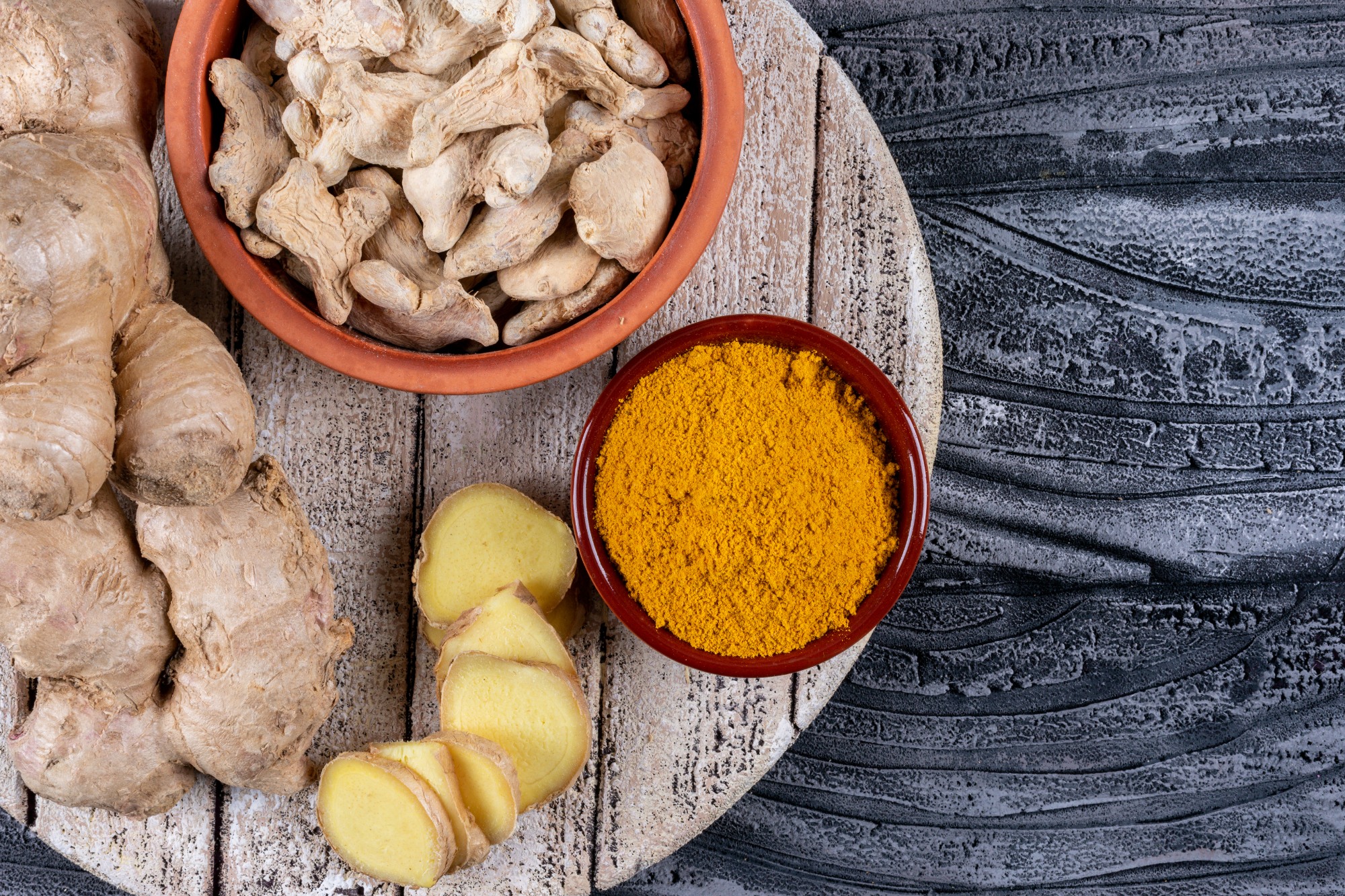This Superfood Duo Can Strengthen Immunity and Improve Digestion

These flavorful ingredients are rich in bioactive compounds that promote overall health. Research indicates that both turmeric and garlic possess anti-inflammatory properties that can bolster immune health and reduce the risk of chronic diseases.
Consuming these spices together may amplify their benefits, providing protection against colds and flu while supporting overall well-being.
Benefits of Turmeric
Turmeric, a golden-orange spice, has been central to traditional Ayurvedic and Chinese medicine for centuries. Native to Southeast Asia, it is derived from the rhizome of the Curcuma longa plant. Its active compound, curcumin, has been linked to numerous health benefits.
- Chronic Disease Support: Curcumin can reduce inflammation, which may help manage conditions like arthritis, psoriasis, atherosclerosis, inflammatory bowel disease (IBD), and depression.
- Heart Health: Curcumin may support heart health by improving blood pressure, cholesterol levels, and blood vessel function.
- Brain Health: The anti-inflammatory and antioxidant properties of curcumin may help protect against neurodegenerative diseases such as Alzheimer’s disease, Parkinson’s disease, and multiple sclerosis.
- Gut Health: Turmeric may promote digestion and alleviate symptoms related to gastrointestinal diseases like irritable bowel syndrome (IBS) and ulcerative colitis.
Benefits of Garlic
Garlic is a staple in both kitchens and traditional medicine worldwide. Although it is technically a root, garlic is valued as a functional spice thanks to its nutrient-rich profile, including high levels of potassium, phosphorus, zinc, and sulfur, as well as bioactive compounds like polyphenols, flavonoids, and tannins.
- Disease Prevention: Garlic’s organo-sulfur compounds may help combat chronic inflammation, reducing the risk of heart disease and certain cancers.
- Immune Support: Garlic’s antiviral properties may help protect against common illnesses like the flu, colds, and respiratory infections.
- Brain Health: Consuming garlic may protect against cognitive decline as we age.
- Liver Support: Garlic may reduce the risk of fatty liver disease in some individuals, though more research is needed.
Can Taking Turmeric and Garlic Together Boost Immunity?
Both turmeric and garlic are known for their immune-boosting effects. Turmeric’s curcumin provides anti-inflammatory, antimicrobial, and antioxidant benefits that support the immune system, while garlic’s properties help combat viruses and inflammation. Combining them may enhance these effects, strengthening immune function and reducing the risk of infections and chronic diseases.
How to Take Turmeric and Garlic Together
Turmeric and garlic offer health benefits in a variety of forms. Here are a few ways to incorporate them into your routine:
Tea: Brew turmeric and garlic together in a soothing herbal tea. To make turmeric tea, simmer 1 teaspoon of turmeric powder in hot water for several minutes, adding honey or black pepper for enhanced benefits. To make garlic tea, crush 1-2 cloves of fresh garlic and steep them in hot water. For a combined brew, boil both ingredients together and let steep.
Cooking Spice: Turmeric is commonly used in curries, soups, smoothies, and marinades. Garlic complements turmeric in many savory dishes, such as pasta, stews, sauces, and salads. Add 1-2 cloves of raw garlic or 1-2 teaspoons of crushed garlic to your meals.
Supplements: Turmeric and garlic supplements are available in various forms, including powders, capsules, and tablets. Taking turmeric with black pepper may enhance curcumin absorption, and recommended dosages for garlic range from 200-3,600 mg daily.
Other Spices for Immunity
Several other spices have been linked to enhanced immune function, such as:
- Basil: Known for its anti-inflammatory and antimicrobial properties
- Rosemary: Has antioxidant and anti-inflammatory benefits
- Sage: Supports immunity with its antiviral and antimicrobial effects
- Thyme: Offers a range of immune-boosting benefits, including antimicrobial properties
- Ginger: Known for its anti-inflammatory, antimicrobial, and antiviral effects
- Cinnamon: Has antioxidant, anti-inflammatory, and antimicrobial benefits
Is It Safe to Take Turmeric and Garlic Together?
For most healthy adults, turmeric and garlic are safe to consume together. However, both spices have blood-thinning effects, which may interact with blood-thinner medications like warfarin (Coumadin). People taking blood thinners should consult with their healthcare provider before incorporating these spices into their diet.
Side Effects of Turmeric and Garlic
Both turmeric and garlic are generally safe in moderate amounts, but some individuals may experience side effects:
- Turmeric: May cause nausea or diarrhea if taken in large amounts. There are also concerns about liver injury, though more research is needed.
- Garlic: Excessive consumption can lead to bloating, gas, heartburn, and changes in body odor.
Conclusion
Garlic and turmeric are powerful root vegetables that offer a variety of health benefits, especially for immune health. By incorporating them into your diet—whether in foods, teas, or supplements—you may strengthen your body’s defense mechanisms, improve digestion, and reduce the risk of chronic diseases. Always check with a healthcare provider to determine the best dosage and method for incorporating these spices into your routine.
Sources:
- National Center for Complementary and Integrative Health. Turmeric
- Peng Y, Ao M, Dong B, et al. Anti-Inflammatory Effects of Curcumin in Inflammatory Diseases
- Yang C, Zhu Q, Chen Y, et al. Review of Curcumin’s Protective Mechanism on Cardiovascular Disease
- Arreola R, Quintero-Fabián S, et al. Immunomodulation and Anti-inflammatory Effects of Garlic Compounds
Virtual Reality in Education
Discover the world of our news. Post your article so that it will be featured in our magazine.
Editoria Quiz
Please complete all questions. Mark the best answer from the choices given.













2 Comments
Wow, cool post, thanks for sharing.
Thanks for sharing this information is useful for us.